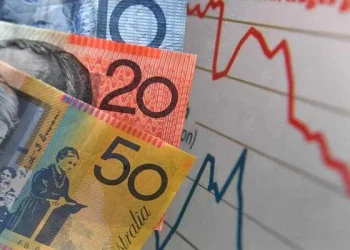In the Islamic bond market of the Gulf region, there are many high-quality bonds issued by sovereign and corporate entities, which have also brought considerable returns.
Dubai – According to Fitch Ratings, a national strategy recently approved by the United Arab Emirates targeting Islamic finance and halal industries is expected to significantly enhance the country’s position in the global Islamic bond market. Although the specific details of the full implementation of this strategy have not been announced yet, these ambitious goals fully demonstrate the determination to promote the expansion of the existing powerful Islamic financial ecosystem from the top down.
The strategy approved at this week’s cabinet meeting has set a clear vision: to more than double the assets of Islamic banks from 986 billion dirhams to 2.56 trillion dirhams by 2031. Meanwhile, it is planned to increase the local issuance of Islamic bonds to 660 billion dirhams and raise the scale of international Islamic bonds listed in the United Arab Emirates to 395 billion dirhams. The advancement of this strategy will be supervised by a committee chaired by the governor of the central bank. According to the data from the Central Bank of the United Arab Emirates, the assets of Islamic banks in the UAE currently account for more than 17% of the total assets of the banking system, and their growth rate is faster than that of traditional banks.
Fitch estimates that as of the first quarter of 2025, the value of the Islamic financial industry in the United Arab Emirates has exceeded 285 billion US dollars. In the first four months of this year, the issuance volume of Islamic bonds increased by 28% year-on-year, reaching 6.5 billion US dollars. By contrast, the issuance volume of traditional bonds increased by only 6.7% during the same period. It is worth noting that during the global market turmoil in April caused by factors such as the new tariffs imposed by the United States, the issuers of the United Arab Emirates were more inclined to issue Islamic bonds rather than traditional bonds when entering the US dollar market. At present, the number of Islamic bonds listed on Nasdaq in Dubai has exceeded the total of traditional bonds and stocks. It is expected that this place will remain an important issuance venue for Islamic bonds denominated in US dollars globally.
Fitch has currently rated $28 billion worth of UAE Islamic bonds, of which 92.1% are investment grade. Approximately 39.2% of the bonds are rated as “A”, 34.5% as “BBB”, and 18.5% as “AA”. In 2024 and the first quarter of 2025, no Islamic financial entities or Islamic bonds defaulted.
However, challenges still exist. Competition from large state-owned traditional banks may become increasingly fierce, and the constantly changing requirements for compliance with Sharia law may also make the bond issuance process more complicated.
Despite this, with regulatory support, the increasing diversity of issuers and the growing demand from investors, the UAE’s new strategy is expected to solidify its position as a global leader in Islamic finance and halal trade over the next decade.
Related topics




















